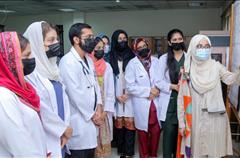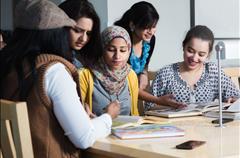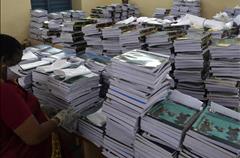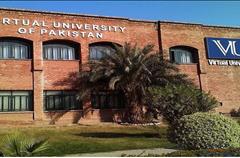Lahore: A group of 50 Muslim clerics in Pakistan issued a fatwa on Sunday, stating that the marriage of transgender individuals is permissible in Islam.
The fatwa also stated that all funeral ceremonies for a transgender person will be the same as for any other Muslim man or woman.
This fatwa was issued by clerics affiliated with non-political Islamic organization Ittehad-i-Ummat Pakistan.

According to media sources, the religious decree stated that “"It is permissible for a transgender person with male signs on his body to marry a transgender person with female signs on her body". However, it also added that individuals who showed visible signs of both genders were not allowed to marry.
It also states that "normal men and women can also marry such transgender individuals as have clear indications on their body."
However, it did not say what these indications were.
Islam also prescribed their share in inheritance, said Qadri.
The parents who expel their transgender children from house or dispossess them of their due share in inheritance commit a sin.
.gif)
Mufti Imran, a member of Ittehad-i-Ummat Pakistan organization calls upon the government to take strict action to ensure that the transgender community is given the same rights like that of ordinary residents of Pakistan.
According to Imran, making fun of a transgender person, even by way of hooting, considering them inferior as well as insulting them is outlawed.
"With this fatwa, we want to inform the public that they can marry", says Mufti Imran.
He notified all transgender people to abide by the beliefs of Islam. He said prayers, fasting, zakat as well as Hajj are also obligatory on them.
A report from Binnori Town Masjid, a center for Deobandi believed, said appropriate talks and discussions are required before such a decree is issued.
In 2012, Supreme Court of Pakistan declared the same rights for transgender residents, involving the right to inherit property and assets, headed a year earlier by the right to vote.
Though, Pakistani marriage law remains unclear. It disallows homosexual couples permission to marry, with male homosexuals having been charged under anti-sodomy laws in the past.
The fatwa that was issued on Sunday declared marriage with any individual possessing both male and female "signs" to be against Islamic values.
.gif)
Avoided by mainstream society, the transgender individuals in the country of 190 million are often forced into begging, prostitution or dancing to earn a living.
Late last month, a 23-year-old transgender woman, named Alisha died after being shot and afterward refused treatment at the largest government sector hospital in Peshawar.
Her death sparked debate over the rights of transgender persons, along with an inquiry concluding that senior doctors at the hospital were responsible for "illegal carelessness", and recommending that illegitimate charges be filed.
Over the past two years, more than 45 transgender have been killed in only in Peshawar region.

The chairperson of Ittehad-i-Ummat Pakistan, Zia-ul-Haq Naqshbandi, said;
“We need to accept them also as God’s creation. Whoever treats them badly, whether it is society, the government or their own parents are sinners”.
The activists claim that transgender persons receive not enough protection from authorities in Pakistan because of their offensive status. They welcomed the fatwa that was issued on Sunday, and called on the government of Pakistan to codify the declaration with obligatory legislation.
A transgender community activist, Qamar Naseem said:
“This is the first time in history that Muslim clerics have raised their voices in support of the rights of transgender individuals”.
But we really need to go further for transgender people and the country need to introduce legislature on it.
Parveen, another transgender campaigner, also called upon the government to introduce a transgender option, along with male and female, on official national ID cards of Pakistan.
"I want to marry a male transgender, however to register a marriage I need a national identity card along with the mention of my gender, which is not available. I was kicked out from my family in my childhood and now the authorities are asking for CNIC of my father, however my family refuses to even see my face”, she added.








.gif)












1.jpg)
















